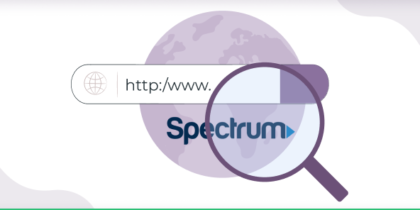For some people, safeguarding their online privacy isn’t a big concern; it’s just a matter of preference. But for many other individuals, a breach of information could have a negative impact and some serious implications. This is especially true when it comes to journalists – whether it’s investigative or otherwise.
After all, journalists have to deal with undisclosed sources and handle large amounts of sensitive data, some of which must be kept confidential at all costs. In the coming paragraphs, we will highlight why it’s important for journalists to consider online privacy, as well as some measures they can take to protect themselves and their sources.
Why Journalists Should Think About Privacy?
According to the Freedom of Information Act, anyone has the right to inspect documents held by public officials and distribute it through any media channel. However, these examples of journalists falling prey to government surveillance and repression prove the exact opposite:
- Imprisoned CIA whistleblower Jeffery Sterling, a source for New York Times reporter James Risen, served a 3 ½ months sentence for violating the Espionage Act as he unveiled details about Operation Merlin. The case against Sterling was built by using the email and phone records between him and Risen.
- In October 2014, New Zealand-based journalist Nicki Hager’s home was raided by the police for working with The Intercept on stories from the Snowden archive. Computers, CDs, hard drives, a camera, an iPod and a large collection of papers were confiscated. While no evidence exists to suggest the raid was prompted by Hager’s work, it’s possible that the authorities already knew that he had access to sensitive NSA documents.
How Journalists Can Handle Privacy Protection?
Even though privacy isn’t exactly an inherent right in today’s day and age, there are certain steps that can enhance the safety of journalists. Without further ado, let’s take a closer look at them:
1. Be Cautious, Always!
First of all, you need to be cautious. Though this may seem pretty obvious, you’ll be surprised to see the small mistakes you make when you closely examine your daily activities. For instance, if you have a habit of leaving your email accessible on your computer at work, you could put the information passed between you and your sources at risk!
Similarly, you should never handle sensitive information while using public Wi-Fi networks in cafés, hotels, airports, etc. Since these public networks are unencrypted, it’s easier for hackers to snoop and access everything being sent over them. Also, don’t respond to any requests to open attachments or share personal information in your email from untrusted senders.
2. Utilize Proper Passwords
A password is the first line of defense when it comes to preventing unauthorized access of your online accounts, devices, and computer. For this reason, it’s important to change your passwords after every few weeks and make sure they contain a minimum of eight characters with a combination of symbols, numbers, as well as uppercase and lowercase letters.
Refrain from using personal dates or names of family members as your passwords – they can be guessed quite easily. Furthermore, never make the mistake of using the same password for your online accounts. If you’re concerned about remembering them, there are a variety of password management tools available online for your convenience.
3. Encrypt Your Communications
There are a variety of ways through which you can communicate with your source, and meeting face-to-face is one of them. However, since the biggest risk of meeting in person is being seen together at the same place, you should limit your communications to online only wherever possible – either via email, instant messaging, or VoIP calls.
Regardless of what option you choose, it’s extremely important to encrypt your communications from end-to-end. This will hide them entirely in the process, making it close to impossible for hackers or spies to intercept the data sent between you and your source. With a VPN, you can encrypt all your calls, emails, and messages for confidential communications from anywhere.
4. Protect Important Documents
If your computer happens to fall into the wrong hands, your sensitive files and documents could be left exposed to prying eyes. As the incident with Nicki Hager suggests, the data on your personal devices is also vulnerable, and while a strong password would make retrieval of those transcripts or interview recordings difficult, it won’t take too long before a tech-savvy person is able to crack your password.
Get detailed information on how to password protect your PDFs and important documents.
This is where a virtual private server (VPS) can be useful – it enables you to store your important documents securely and access from anywhere. For an additional protection, you should connect to a VPN first and then your VPS as it will encrypt the entire connection and make data transmission more secure.
If you don’t like the idea of setting up a VPS at home, you’ll be delighted to know that PureVPN offers personal servers for complete internet freedom, privacy, and security. It gives you 100% control over who can access the data, and also allows you to store and access your confidential data remotely with complete peace of mind.
5. Anonymize Your Browsing Information
Don’t want a particular detail about your investigation to get leaked? Then, you would want to keep your browsing activities private. Though you may be inclined to use your browser’s private browsing mode, it isn’t totally private and only hides your browsing history from those with access to your computer.
Related Read: How Private Browsing Works?
If you want to keep your browsing information completely private, then getting your hands on a VPN is your best bet. Basically, it replaces your real IP address and location with that of any other country in the world, which means your browsing history remains hidden from governments, ISPs, hackers, websites, and employers.
6. Use a VPN
We’ve talked about the use of a VPN on a few occasions earlier, but we’ll get into the nitty gritty here so you can understand why it’s the most important tool when it comes to maintaining your privacy online. A VPN for journalists will not only replace your IP address of any device, but also encrypt your internet traffic and communications from end-to-end.
This means third-parties will no longer be able to monitor your online activities and the services, apps, or websites you use wouldn’t be able to identify you. Furthermore, it also prevents hackers and spies from intercepting the data you send over a network. Another huge plus of a using a VPN is that you’ll be able to access content and sources that are unavailable in your region.
Organizations Dedicated to Protecting Journalists
The following are some non-profit organizations that journalists can reach out to when they require assistance:
- Reporters Committee for Freedom of the Press provides free legal assistance and information to media lawyers and journalists.
- Access Now offers direct technical advice and assistance to journalists, activists, human rights defenders, etc.
- Freedom of the Press Foundation uses internet advocacy, crowdfunding, and digital security to support whistleblowers and journalists worldwide.
- Investigative Reporters and Editors provides members with training and resources to improve the quality of investigative journalism.
- Committee to Protect Journalists promotes press freedom around the world through research and advocacy.
Final Word
Being a journalist, you probably have a lot of information that you want to keep off the radar, whether it’s to protect your identity or hide certain data. The measures discussed above will go a long way to protect journalists and their privacy – as well as that of their sources – from being revealed to unwanted parties.










